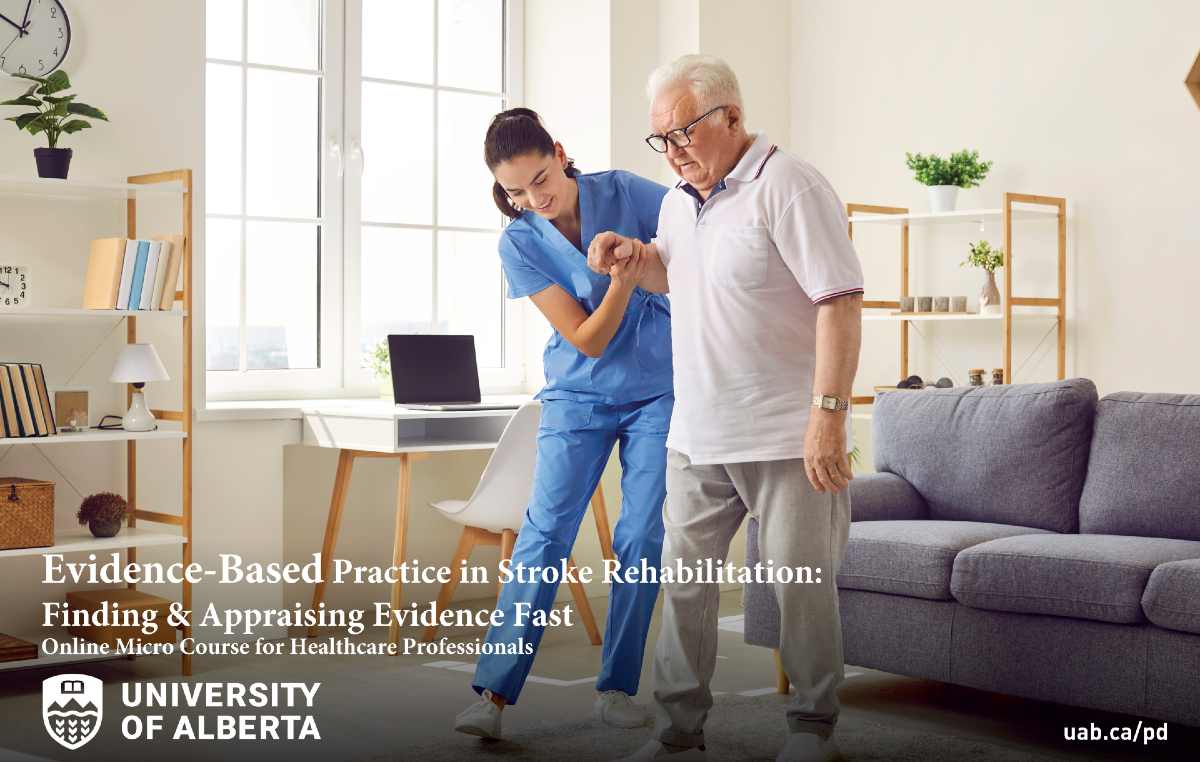Evidence Based Practice in Stroke Rehabilitation: Finding + Appraising Evidence Fast

Course description
This course will focus on current translational issues in stroke rehabilitation, and provide learners with critical appraisal skills and tools needed to find and evaluate evidence in stroke rehabilitation.
The online course is 13 content hours delivered over a 6-week timeframe (35 educational hours).
Now accepting registrations for the next course running February 5 - March 15, 2024.
Join our email list to receive new course and deadline updates! 📧
Course Goals
This course is designed to teach evidence-based practice (EBP) skills that will enable learners to find and critically appraise existing literature. Essential topics for clinical inquiry include developing PICO questions, evaluating existing stroke best practice clinical guidelines, critically analyzing and synthesizing research articles, and integrating evidence into clinical practice.
COURSE learning objectives
- Understand and discuss relevant issues in stroke rehabilitation.
- Discuss and articulate what it means to practice using an evidence-based approach.
- Explain about different kinds and levels of evidence in the process of critical appraisal.
- Create a clear clinical question and efficiently find evidence related to the issue.
- Efficiently locate and evaluate evidence from stroke best practice guidelines.
- Read and determine the scientific value of a research study and discern its practical implication for professional work.
COURSE HOURS
The course is approximately 1 credit equivalent (13 content hours). However, you should expect to spend somewhere between 18-35 total hours on the course (varies depending on the individual). We do equate the course on the high end of that and 35 educational hours appear on the digital certificates that are issued after course completion.

Course facilitator
Crystal MacLellan, PhD, MScPT, BSc
Crystal MacLellan is an Associate Teaching Professor in the Department of Physical Therapy at the University of Alberta. She is a Physical Therapist with experience in private practice, acute care and community settings. She has a special interest in working with children and adults with neurological conditions. She is a director of “PoolBrats”, which is a non-profit accessible and supervised aquatic walking program for individuals with brain cancer.
More Information
STEP 1: Please apply at:
STEP 2: Confirm your registration by making the $250 course payment at:
A 100% refund of the $250 course fee is available to students who withdraw before the first day of the course. Withdrawal requests during the first 3 weeks of the course will be refunded 50% of the registration fee. After 3 weeks (mid-point of the course) no refund will be provided.
This course is delivered 100% asynchronously meaning there is no requirement to be online at a specific class date and time. Participants can complete the learning activities in a place and time of their choosing. Content is accessible twenty four (24) hours-a-day from any location with an internet connection.
There are no grades for this course. Instead, students receive a complete or incomplete score based on satisfactory completion of the course. To successfully complete the course students are required to work through all learning activities and achieve 60% on all the knowledge check quizzes at the end of each module. Students are given unlimited quiz attempts and can challenge these at any time throughout the course.
Upon successful completion of each module participants will be issued a faculty digital certificate noting the number of educational hours.
Contact us at sdrefs@ualberta.ca.